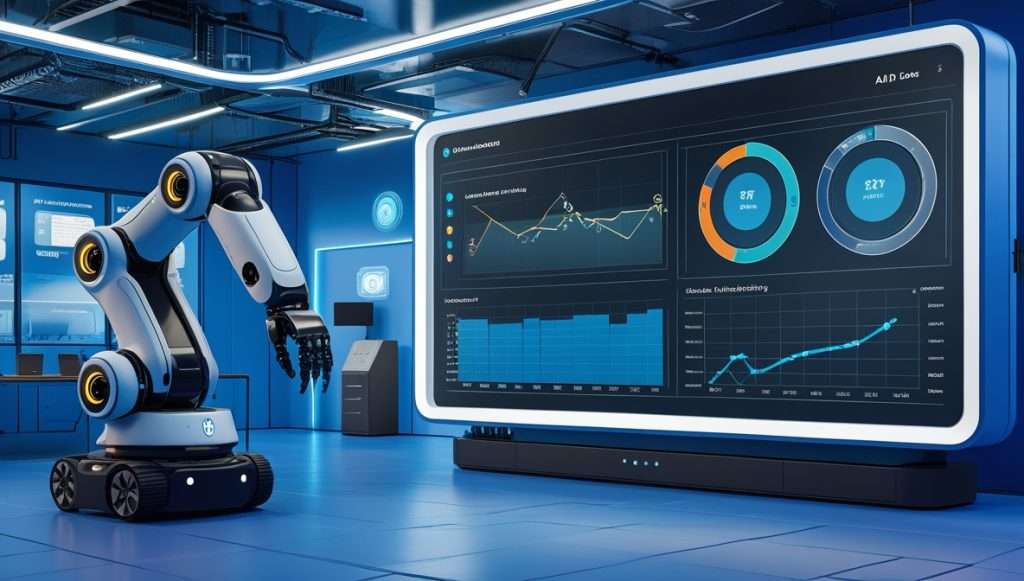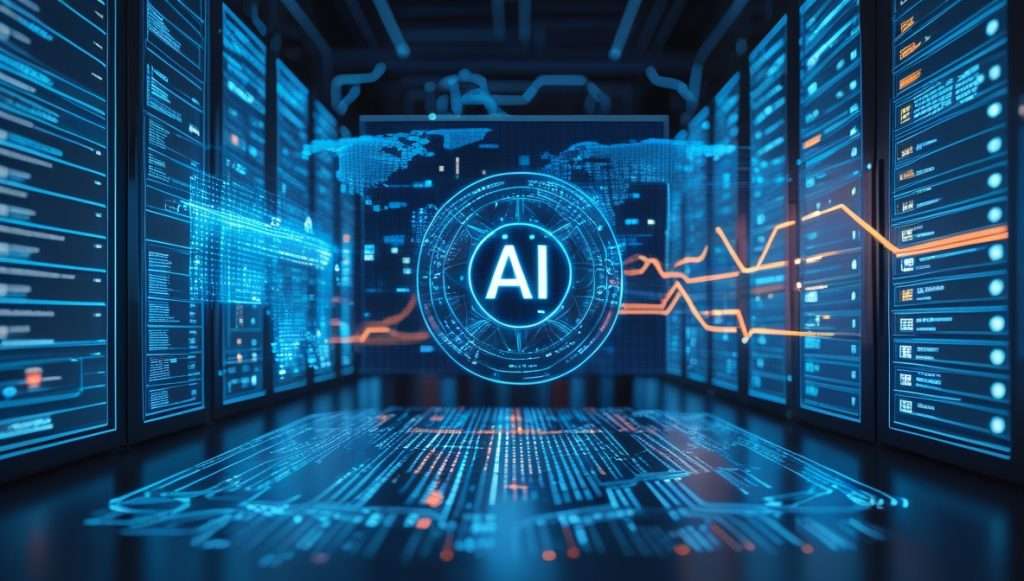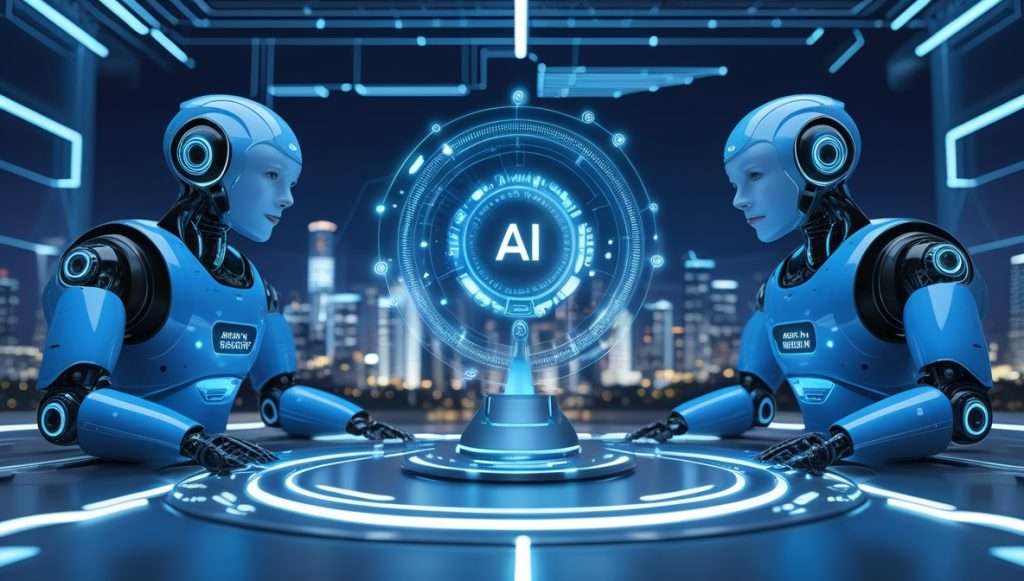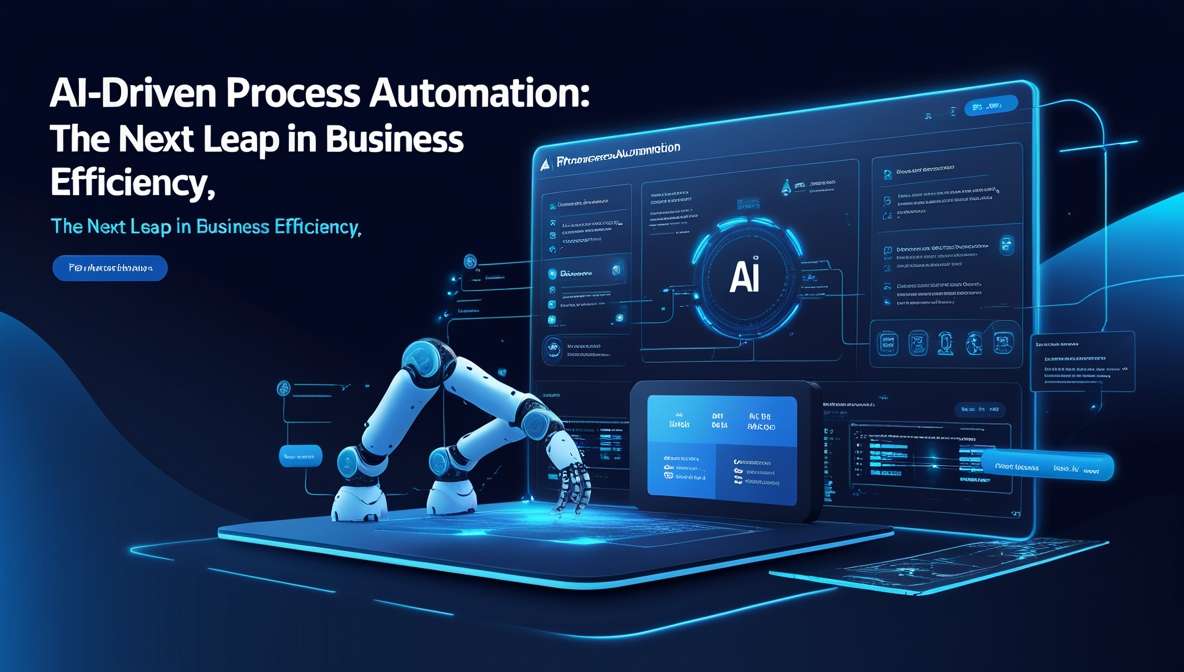AI-driven process automation is revolutionizing the way businesses operate, optimizing workflows, reducing human intervention, and improving efficiency. Organizations use artificial intelligence to automate recurring work as well as optimize decision-making systems and boost productivity levels because AI development continues to progress. The movement toward AI automation powers companies to allocate their assets more efficiently thus reducing expenses and building improved output quality.
Enterprises that adopt AI-based business integration gain enhanced performance characteristics including precision and scale for better market success within digital markets. Industry evolution will determine AI-driven automation to become the core operational element of business strategies. Every industry sector is undergoing change because of automation powered by artificial intelligence which impacts finance as well as healthcare together with manufacturing and customer service operations. The implementation of these technologies in current business operations creates advanced capabilities which allow organizations to thrive as competition intensifies within the marketplace.
AI’s Role in Business Process Automation

Businesses across all sectors use AI automation systems to optimize their operations while achieving greater precision at reduced operational expenses. The operational efficiency improves substantially due to AI because it eliminates human involvement from standard business processes. Businesses using AI automation gain better resource management combined with higher productivity for focusing on strategic operations that drive growth. The competitive advantage for companies that implement intelligent automation in their workflows grows further because this improves their speed to market and their scalability along with overall business performance.
Enhancing Workflow Efficiency
The implementation of AI-powered automation tools enables companies to manage repetitive tasks and thus their employees can dedicate time to performing high-value critical duties. Artificial-intelligence technologies automate operations through streamlined processes that reduce human involvement while handling customer needs and invoice management. The combination increases production speed while minimizing mistakes while delivering works projects at higher speeds.
Improving Decision-Making with AI
Real-time processing of analytics through AI technology enables businesses to generate data-driven solutions for their decisions. Machine learning systems examine data volumes to discover regular patterns that enable them to foresee upcoming developments. Through these systems organizations can enhance their strategic methods and assign resources efficiently which leads to better performance results for their business.
Reducing Operational Costs
AI-driven automation enables organizations to minimize operational costs through reducing requirements for heavy reliance on manual workforce. Businesses using AI-powered chatbots alongside robotic process automation (RPA) with intelligent data processing tools achieve both reduced operational expenses and continuous operational efficiency.
AI-Driven Automation Strategies for Business Growth

Existing strategic planning focused on business targets remains essential to obtain maximum benefits from AI automation implementations. Businesses need to focus on repetitive systems which consume too much time by identifying and automating them including invoice processing and HR management and customer enquiry systems.
Businesses need to purchase AI-powered tools which adapt to current business infrastructure while performing ongoing workflow enhancement routines. Machine learning models in combination with predictive analytics help businesses improve both strategic operational agility and enhanced decision-making capabilities. AI automation strategies that receive proper planning achieve dual objectives of cost reduction and enable innovation to drive sustainable business expansion.
Intelligent Workflow Automation
The integration of AI into workflow automation allows enterprises to reach operational excellence through automated choice making processes as well as task implementation. AI-powered systems examine patterns while learning from user behavior to present optimal decisions for implementing tasks. AI systems enable the automation of HR tasks that include employee onboarding together with payroll management and performance tracking functions.
Organizations that automate their operations can become more efficient in their operations so they free up resources to pursue strategic initiatives. Supply chain management obtains advantages from AI-based automated systems by conducting inventory optimization alongside the prediction of demand shifts and logistics system optimization.
AI-Powered Data Processing and Analytics
The power of artificial intelligence lies in its ability to process vast data sets which delivers businesses usable information for developing superior choices. The analysis of data by AI-led businesses results in speedier business choices based on better information which produces higher profitability.
Dan financial systems controlled by computers help companies improve their budgeting and risk evaluation and fraud prevention which creates better financial health results. Organizations who adopt AI for their data-driven selection procedures will develop better efficiency while gaining an enhanced market position.
AI-Enabled Customer Service Automation
Customer service is another area where AI-driven process automation is making a significant impact. AI cells named virtual assistants manage client problems and deliver customized solutions to end-users with little help from human operators. The automated systems driven by AI ensure permanent access to service which decreases customer waiting time and delivers better satisfaction rates.
Chabots gain better capabilities to process customer inquiries correctly because businesses integrate natural language processing technology into their systems. Businesses use sentiment analysis tools based on AI to measure customer feedback and find customer problems which leads to better service quality.
The Future of AI in Business Process Automation

AI-powered automation systems will achieve greater sophistication in upcoming years because they will possess intelligence which allows them to handle complex decision-making responsibilities. Self-learning AI systems will move past methods to operate through real-time data adjustments that increase operational efficiency with limited human involvement.
Businesses will maximize across-department workflow optimization through Robot Process Automation (RPA) which combines with AI technology. The continued development of AI technology enables organizations to obtain advanced automation tools which promote innovative business strategies while delivering superior customer value and operational redefinitions in digital environments.
Hyperautomation and Autonomous Operations
The next major business automation development involves Hyperautomation through multiple AI technologies that automate complete processes. Operations that use combined technologies of AI together with RPA alongside advanced analytics function autonomously with very little human input.
AI robots which operate alongside human workers will carry out demanding assembly assignments in manufacturing operations. Finance industry operations will see AI-driven trading algorithms automatically execute trades after market prediction. The momentum of hyperautomation adoption will enable organizations to achieve better levels of performance while providing accurate solutions at expanded operational capability.
AI-Powered Decision-Making
AI will extend its influence to progressively enhance strategic choices during the next few years. Predictive analytics enabled by AI technology provides organizations improved accuracy in their predictions of market patterns and customer conduct and operational hazard forecasts.
AI models which continue their development pathway will expand their analytical capabilities to reach various unstructured data formats like social media accounts and emails and voice communications to retrieve complete insights. Organizations which adopt AI-powered decision systems will gain superior capability to adjust their operations when market conditions change and find new business prospects.
AI-Driven Cybersecurity Automation
Digital operations growth combined with the reliance on digital operations brings about complex cybersecurity threats. Security automation equipped with artificial intelligence technology demonstrates its prime position in defending companies against cyberattacks.
Artificial intelligence security platforms implement machine learning analytics to analyze irregular system activities and detect security threats instantly upon occurrence. Threat detection automation tools conduct rapid incident responses without human contact. The process of digital operation expansion by businesses will necessitate AI-driven cybersecurity automation systems for protecting data and preserving organizational trust.
Conclusion
AI-driven process automation is transforming the business landscape, improving efficiency, reducing costs, and enhancing overall productivity. Businesses who adopt AI automation technology will establish themselves as market leaders and maximize their industry growth because of technological advancement. AI power will determine future business efficiency improvements through its ability to optimize operations and streamlines workflow systems. The long-term success along with sustainability in the evolving digital economy comes to organizations that invest in AI-driven automation in the present day.

